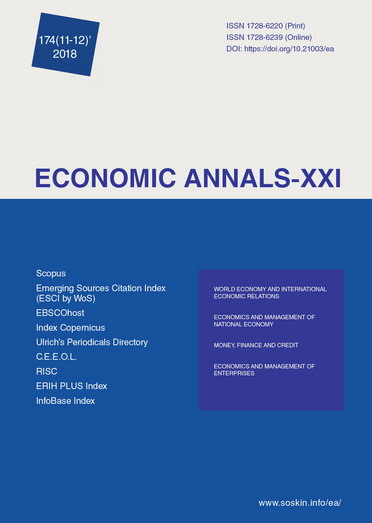Contribution of the economic and social sector to economic development: the case of the UK, Sweden and Lithuania
Contribution of the economic and social sector to economic development: the case of the UK, Sweden and Lithuania
Author(s): Laima Okunevičiūtė Neverauskienė, Irena PranskeviciuteSubject(s): Business Economy / Management, Rural and urban sociology, Economic development
Published by: Institute of Society Transformation
Keywords: Social Economy; Social Enterprise; WISE; Welfare; Public Services; Rural Development; Lithuania; Sweden; UK;
Summary/Abstract: Social enterprise development is a significant factor for social and economic sustainability of countries. The rapidly growing social economy sector contributes to economic development by attracting significant attention from international and national policymakers. It redefines the «market» versus «state» institutional tradition and discovers a new field for economic and welfare development. The article analyses social enterprises’ evolution, scale, scope and contribution to national economies in the UK, Sweden and Lithuania. The research highlights the complex nature of the social economy ecosystem and transformative impact through the intersection of three elements: social impact, economic sustainability and democratic governance. Innovations flow into the public sector through partnership with social enterprises. Social economy organisations fuel entrepreneurship and play significant role in the development of economic and social cohesion and sustainability in deprived rural areas. Social enterprises become key partners for states aiming to fuel competition and innovation into the public sector through deinstitutionalisation and decentralisation of state functions. The article unveils the role which social economy sector plays in the UK, Sweden and Lithuania. It highlights paradoxes which emerge from the specific historical background, particularly the interruption of the Soviet regime, separation of both the private and public sectors and segregation of social economy from economic landscape observed in Lithuania in the contrast to Sweden and the UK. It has been concluded that social economy plays a significant and undervalued role in maintaining the national and global economies. Social economy organisations contribute to GDP through their trade in goods and services in the market and to welfare through sustainable innovative services, including their ability to deal with problems which state or private companies are not able to solve. They generate profit in economically weak areas and fuel entrepreneurship into deprived rural territories. Across different countries, social economy organisations vary in legal forms and scope of their activities. They are organised into unique ecosystems framed by specific socio-political conditions.
Journal: Економічний часопис - ХХІ
- Issue Year: 174/2018
- Issue No: 11-12
- Page Range: 10-15
- Page Count: 6
- Language: English

